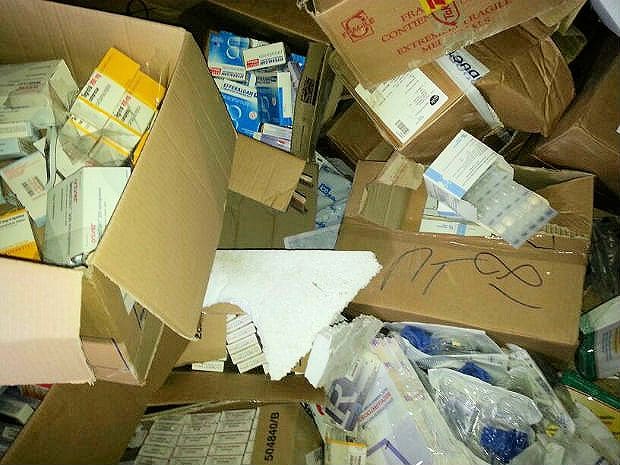Un’indagine di APMAR rivela che il 70% della popolazione prende farmaci senza prescrizione medica, il 60% non getta i farmaci scaduti nell’apposito contenitore e il 70% non controlla se un farmaco è già in suo possesso prima di farsene prescrivere una nuova confezione, con un danno per il Servizio Sanitario Nazionale che rimborsa il 75% della spesa farmaceutica nazionale.
Giovedì, 12 Maggio 2016 – APMAR informazioni
In fact, few wonder what happens to drugs that are thrown away: scientific literature explains that drugs can be considered ubiquitous environmental pollutants, which contaminate the environment through a myriad of widespread sources of pollution. Once administered, many drugs are not metabolized and can be excreted as such in urine and faeces. Tens of thousands of tons of drugs are sold in Italy, and it is known that many of these are not actually used but are mistakenly thrown away in the trash, thus contributing to contaminating the environment and especially the waters.
“We have learned that the 60% of the population does not throw expired medicines in the appropriate containers, explains Celano, and we can only imagine how few people know that, to be disposed of correctly, it is enough to follow a few simple rules:
- drugs must be removed from their original container and thrown into the containers in front of the pharmacies
- paper and cardboard packaging should be disposed of in the paper and plastic and metal blisters together with the plastic
- in the case of liquid medicines (syrups, vials, etc.) it is better to place the entire glass container in the bin in front of the pharmacies
- if in doubt, always ask the pharmacist”.
“The experience of these two years, continues Celano, remains as a sort of inheritance through the information booklet “Guide to the conscious use of medicines” created thanks to the know-how learned and disseminated to citizens through the various initiatives put in place. In it we deal in a simple and practical way with the main issues concerning the relationship between the drug and the consumer: the use, conservation and disposal of the drug”.
“We have given our partnership to the Green Health project, says Luca Pani, AIFA general manager, because it is in line with the agency's philosophy which aims to create opportunities for dialogue between all the interlocutors in this sector: patients, doctors, drug manufacturers and other European regulatory bodies. The first step to take is to build a new drug culture and AIFA has long been committed to supporting tools and strategies to create greater awareness among citizens on the use of drugs, which will certainly be stimulated by reading this useful brochure ”.
The Green Health Project is funded by the Fondazione con il Sud and has the support of the Province of Lecce, the Municipality of Lecce, Cisl Lecce, the Order of Pharmacists, ANOLF, the Emmanuel Community, the Città Nostra Association and the Miriads 49 as a partner and under the patronage of ASL Lecce.
1-Adherence to long-term therapies: problems and possible solutions, WHO 2003
Press office
HealthCom Consulting
Maria D'Acquino 346 6435192 – maria.dacquino@hcc-milano.com
Carlotta Freri 02 87399 174 – carlotta.freri@hcc-milano.com
